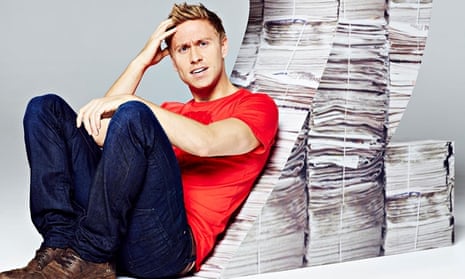Two leading independent TV producers are to mount a £100m bid to buy the BBC3 TV channel, saving it from a move to online-only distribution.
Jon Thoday, joint managing director of Russell Howard’s Good News producer Avalon, and Jimmy Mulville, managing director of Hat Trick, the company behind Have I Got News For You, are expected to make a formal approach to BBC management in the near future.
The bid will be subject to negotiation, but the price offered is likely to be in the region of £100m, with a commitment to increase programme spend in the UK by up to £15m.
If the deal goes through, it will be the first time that a licensed BBC public service has been sold to the private sector.
The bid challenges the current proposal from BBC management – led by director general Tony Hall and director of television Danny Cohen – to close BBC3 as a linear channel, take its programmes online-only, and slash its commissioning budget by about £50m a year.
The proposal could also change the landscape for the negotiations to renew the BBC’s royal charter, which Hall and BBC Trust chair Rona Fairhead will begin with the next government after the general election in May.
If the next government is again Conservative-led, it may well cut the BBC licence fee or extend the current freeze – and, under those circumstances, the Tories are likely to welcome the idea of privatising BBC services rather than closing them.
Thoday and Mulville have written to Fairhead about the proposal.
A source who is familiar with the BBC’s thinking said: “I gather that an approach was made to BBC management, which has been rejected, and that they have now approached the trust.”
A senior BBC insider said: “There’s plenty of confusion as to how any proposal could possibly work, given that the BBC3 brand will live on whether or not the trust’s public-value test is successful. As a brand, it isn’t and can’t be for sale. The BBC3 proposals, while earlier than hoped, do not water down the BBC’s commitment to younger audiences.”
The BBC initially declined to comment, but then put out a statement via its press office Twitter feed late on Tuesday morning: “BBC Three not for sale because it’s not closing – proposal to move it online is part of bold move to reinvent BBC’s offer for young people.”
Shortly afterwards, the BBC also posted a blog in the form of a BuzzFeed-style listicle by BBC3 channel controller Damian Kavanagh. Point one stated: “BBC Three is not closing and BBC Three is not for sale.”
One of the trust’s key obligations under the current BBC charter is to “exercise rigorous stewardship of public money”.
The trust’s own website says it has challenged BBC management to “improve value for money through a simpler, more efficient, and more open BBC”.
A BBC Trust spokeswoman confirmed that the letter from Thoday and Mulville had been received and said it would respond in due course.
Hall announced the shock decision to close BBC3 in the autumn of 2015 in March last year, but formal plans were only submitted to the BBC Trust for final approval in early December. The trust is publishing its public-value test on the closure plan on Tuesday.
The joint approach from Thoday and Mulville also marks an unusual level of co-operation between two competing independent production companies.
Both indies already make a significant number of programmes for the BBC, including BBC3.
Hat Trick’s programmes include Have I Got News For You and Outnumbered for BBC1 and Some Girls for BBC3.
Avalon’s productions for BBC3 include Russell Howard’s Good News and Live at the Electric. Its talent arm represents comedians including Chris Addison, Chris Ramsey and Roisin Conaty.
Many details would need to be addressed before any sale, including the channel’s ongoing relationship with the BBC, its funding and branding, and issues around rights to BBC3 programmes.
Under Thoday and Mulville’s proposal, the privatised channel would stick to BBC3’s current remit.
BBC3’s service licence from the BBC Trust requires its programmes to be aimed at 16- to 34-year-old viewers, and to “stimulate, support and reflect the diversity of the UK”.
The bid also envisages increasing the amount that the channel spends on UK production companies and talent, both on- and off-screen, by about 20%.
The BBC’s own figures predict a content spend for BBC3 (before the transition to online-only) in the financial year 2015/16 of £75m, meaning that the privatised channel could spend up to £90m on programmes – although the eventual figure is likely to be lower, depending on how much of BBC3’s current budget is spent on US acquisitions such as Family Guy.

Comments (…)
Sign in or create your Guardian account to join the discussion